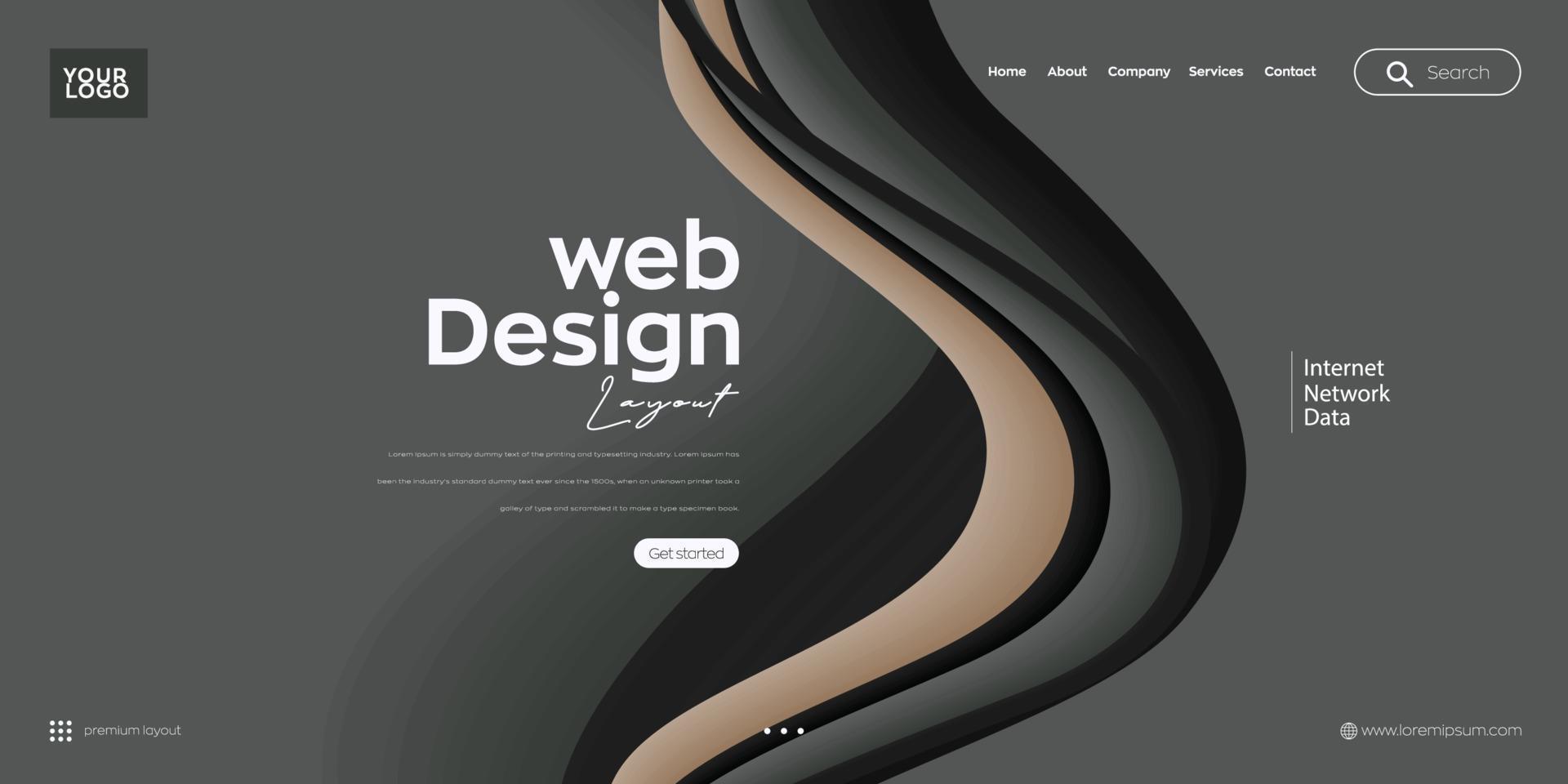Web Design London Ontario with SEO and Mobile-Friendly Features
Web Design London Ontario with SEO and Mobile-Friendly Features
Blog Article
Just How to Efficiently Combine Aesthetic Appeals and Functionality in Internet Layout
When making a web site, you require to strike a balance between visual appeals and functionality. It's not just concerning looking excellent; your design needs to likewise offer an objective and guide customers efficiently. By concentrating on simpleness and intuitive navigating, you can develop an engaging experience. What components truly enhance usability while preserving aesthetic allure? Allow's explore the vital concepts that can lead to a harmonious blend of appeal and feature.
Understanding the Importance of Appearances and Performance
When you create a site, comprehending the equilibrium between aesthetics and functionality is important for creating an effective customer experience. A visually appealing website grabs focus, yet it's the performance that keeps users engaged. Visitors will rapidly lose passion and leave.Consider your target audience and what draws them in if your website looks great yet is tough to navigate. You wish to produce a design that mirrors your brand while ensuring ease of use. Structured designs, intuitive navigating, and clear contact us to activity can enhance both aesthetics and performance.

Concepts of Efficient Internet Layout
To produce an efficient website design, you need to abide by a number of crucial concepts that boost both customer experience and aesthetic appeal. Focus on simplicity; a tidy design assists individuals browse conveniently. Use a consistent color design and typography to keep comprehensibility throughout your website. This promotes familiarity and trust.Next, guarantee your design is responsive. Customers access web sites on numerous gadgets, so your style ought to adjust perfectly. Take note of visual hierarchy; emphasize essential components with dimension, color, or placement to lead individuals' focus.Finally, incorporate ample white area. It avoids mess and makes content much more digestible. Bear in mind, efficient website design equilibriums aesthetics and capability, so every style selection should offer a function. By following these concepts, you'll develop a site that's not just visually enticing yet likewise user-friendly, eventually maintaining visitors engaged and motivating them to return.
Prioritizing Customer Experience
When focusing on individual experience, you'll wish to start by understanding what your individuals truly need. Streamlining navigation style can make a significant difference in how easily they find what they're searching for. Additionally, improving aesthetic pecking order aids direct their focus to one of the most important aspects on your website.
Understanding User Requirements
Recognizing customer requirements is necessary for producing an appealing internet experience that keeps visitors returning. To accomplish this, you have to recognize the goals and preferences of your target market. Start by carrying out user study, like studies or interviews, to gather understandings on what individuals value most. When engaging with similar websites, pay attention to their discomfort points and challenges. This info allows you to customize your style, guaranteeing capability lines up with customer expectations. In addition, think about creating individual personas that stand for various segments of your audience, aiding you imagine their demands during the layout process. When you focus on understanding individual demands, you create an internet site that not only looks excellent but likewise supplies a smooth, pleasurable experience that promotes loyalty.
Simplifying Navigating Layout

Enhancing Visual Hierarchy
A solid aesthetic pecking order is essential in assisting users with your website and guaranteeing they engage with vital material. To attain this, utilize color, spacing, and size tactically. Make vital elements like headings bigger and bolder than body message, attracting attention quickly. Utilize contrasting colors to highlight phone calls to activity, encouraging clicks. Additionally, utilize enough white room to different areas, making content digestible and inviting.Consider the circulation of details; arrange elements logically, leading individuals' eyes from one point to the following. Use visual cues, like lines or arrowheads, to route attention. By prioritizing visual power structure, you enhance individual experience and boost the chance of conversions, guaranteeing your internet site is both aesthetically pleasing and functionally efficient.
Color Theory and Its Influence On Use
While selecting the appropriate shades for your website might look like a small detail, it significantly influences usability and user experience. Shade impacts exactly how users perceive information and can boost or prevent navigation. For example, contrasting colors can assist vital components attract attention, making it less complicated for site visitors to locate what they need.Additionally, take into consideration the psychology of shades: blue commonly influences count on, while red develops urgency. Understanding your target audience can guide your shade options, guaranteeing they reverberate well.Moreover, constant color plans help construct brand identification, making your web site more unforgettable. Be mindful-- as well several colors can bewilder users. Adhere to a limited scheme that complements your material and maintains clarity.Incorporating availability is likewise essential; verify your color mixes get along for those with aesthetic impairments. By thoughtfully using shade theory, you'll improve use and create a much more engaging individual experience.
Typography: Harmonizing Style and Readability
Color options established the phase for your site, however typography plays a just as important function in boosting individual experience. You want your message to communicate clearly while also reflecting your brand's character. Begin by picking font styles that are not just attractive but likewise readable. Sans-serif typefaces usually work well for digital screens, as they're easier to read at numerous sizes.Maintain a hierarchy by utilizing different font style sizes and weights; this guides customers via your web content easily. Take into consideration line spacing and letter spacing; also tight can frustrate readers, while too loose can disrupt the circulation. Limitation your font selections to 2 or 3 to keep the style cohesive.Finally, constantly examine your typography across different tools and web browsers. What looks good on one screen may not on another. Stabilizing design with readability assurances that your message resonates, keeping your target market engaged and notified.
Receptive Style: Making Looks Service All Devices
To assure your web site looks excellent on any type of device, you'll need to welcome receptive design concepts. This technique assurances your site adapts to numerous screen dimensions, supplying an optimal individual experience. Start by utilizing fluid grids and flexible pictures that scale seamlessly. As opposed to dealt with dimensions, go with portions look at this now and loved one devices, enabling your format to change dynamically.Next, implement media inquiries in your CSS. These allow you use different styles based upon device features, like screen size. In this manner, you can preserve visual charm while ensuring functionality.Don' t fail to remember concerning touch targets; make specific switches and web links are easy to tap on smaller sized displays. Prioritize necessary content, so customers can quickly browse your site no matter their tool. By concentrating on these components, you'll create an appealing, aesthetically appealing experience that fulfills the needs of all individuals, whether they're on a tablet, mobile phone, or desktop computer .
Carrying Out Functionality Testing for Continuous Improvement
To enhance your web style, you require to set clear functionality goals that straighten with user demands. By carrying out individual tests, you can gather useful feedback on just how real people engage with your website. Evaluating these results will certainly help you make informed renovations and develop an extra efficient individual experience.
Defining Functionality Goals
While aesthetics can attract individuals in, specifying use goals is crucial for ensuring their experience remains satisfying and smooth. Begin by identifying what you want individuals to attain on your website (website design london Ontario). Consider their jobs, requirements, and behaviors. Are they seeking information, buying, or authorizing up for a newsletter? Establish clear benchmarks to measure success, like task conclusion rates or time on task. Focus on instinctive navigation, obtainable material, and receptive style to improve usability. Frequently revisit these goals as individual expectations evolve. By defining usability goals, you produce a structure for evaluating and enhancing your internet site's performance. This concentrate on use not only enhances user contentment however also reinforces the total performance of your style
Performing Individual Examinations
Conducting user examinations is necessary for refining your internet site and ensuring it meets your audience's demands. Start by identifying your target individuals and developing an examination plan that outlines your purposes. Make use of a mix of quantitative and qualitative approaches, such as studies, meetings, and task-based monitorings, to collect complete responses. Welcome individuals to navigate your site while you observe their interactions and note any kind of difficulties they encounter. Urge open dialogue to catch their thoughts and feelings regarding the design and performance. Maintain sessions short and focused, ensuring you cover crucial areas without frustrating customers. Make sure to document all searchings for, as this info will certainly be important for making informed style decisions that enhance both looks and functionality.
Analyzing Examination Outcomes
How can you successfully evaluate the outcomes of your usability tests to drive continual improvement? Beginning by classifying feedback into common motifs. Seek patterns in individual habits that highlight pain points or locations for enhancement. Usage measurable information, like job conclusion prices and time on job, to determine usability fairly. Do not fail to remember to think about qualitative understandings from user comments; they frequently expose underlying problems that numbers can not reveal. Focus on one of the most impactful searchings for and produce actionable things for your layout group. Keep in mind, it's concerning iterating-- carry out adjustments, then test once more. This cycle of testing, analyzing, and refining assists you balance visual appeals and functionality, guaranteeing your web site meets individual demands efficiently while keeping visual allure.
Regularly Asked Questions
Exactly how Do I Select the Right Shade Combination for My Web site?
To select the right shade combination for your web site, consider your brand's individuality, target audience, and emotional impact (website design london Ontario). Usage color psychology, produce consistency, and guarantee readability. Examination combinations to see what reverberates best with visitors
What Equipment Can Help With Website Design Appearances and Functionality?
You can utilize devices like Adobe XD, Figma, and Lay out to enhance your web design's looks and performance. These systems use user-friendly interfaces, collaboration features, and pre-made themes to improve your imaginative process and improve your designs.
Just How Can I Include Animations Without Endangering Capability?
To incorporate animations without compromising performance, prioritize refined results that enhance user experience. Use CSS animations for smoother communications, warranty quick lots times, and test on numerous tools to preserve performance while including aesthetic allure.
What Prevail Blunders to Avoid in Website Design Aesthetics?
When making, avoid chaotic formats, bad shade Visit Website selections, and irregular fonts. Do not neglect mobile responsiveness, as it can push away individuals. Verify your style aligns with your brand, producing a smooth experience that engages site visitors properly.
How Commonly Should I Update My Internet site's Design for Optimum Aesthetic Appeals?
You must upgrade your web site's design every go to this website 1-2 years to maintain up with fads and keep perfect visual appeals. Frequently renewing visuals aids engage assurances and visitors your site remains appealing and user-friendly. When you make an internet site, comprehending the balance between looks and performance is essential for creating an efficient user experience. To develop a reliable internet style, you need to adhere to several vital concepts that enhance both user experience and visual allure. Individuals access sites on different tools, so your design must adapt seamlessly. When focusing on individual experience, you'll want to start by understanding what your users genuinely need. Beginning by performing individual study, like interviews or surveys, to collect insights on what users worth most.
Report this page